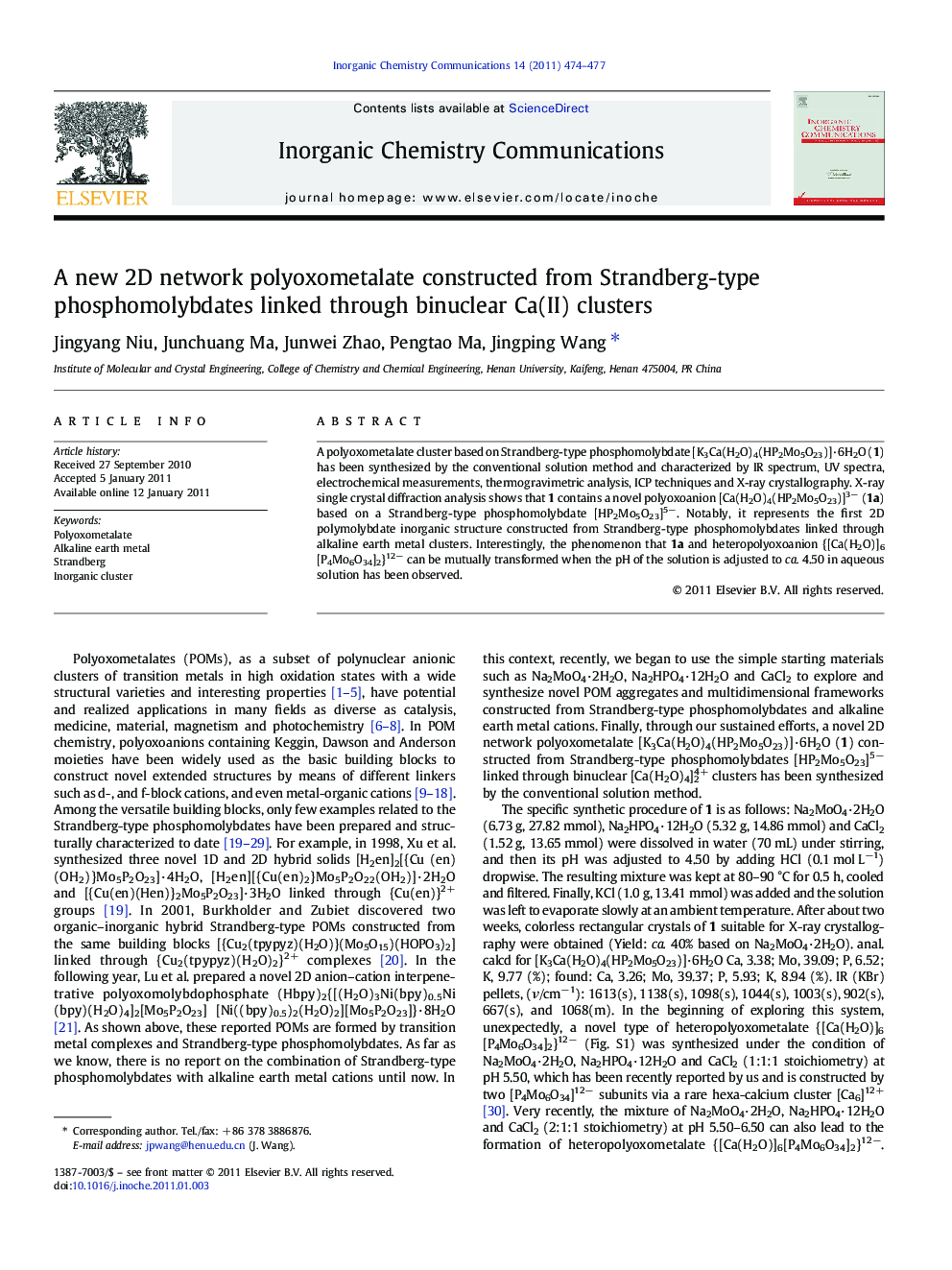| کد مقاله | کد نشریه | سال انتشار | مقاله انگلیسی | نسخه تمام متن |
|---|---|---|---|---|
| 1304318 | 974815 | 2011 | 4 صفحه PDF | دانلود رایگان |

A polyoxometalate cluster based on Strandberg-type phosphomolybdate [K3Ca(H2O)4(HP2Mo5O23)]·6H2O (1) has been synthesized by the conventional solution method and characterized by IR spectrum, UV spectra, electrochemical measurements, thermogravimetric analysis, ICP techniques and X-ray crystallography. X-ray single crystal diffraction analysis shows that 1 contains a novel polyoxoanion [Ca(H2O)4(HP2Mo5O23)]3− (1a) based on a Strandberg-type phosphomolybdate [HP2Mo5O23]5−. Notably, it represents the first 2D polymolybdate inorganic structure constructed from Strandberg-type phosphomolybdates linked through alkaline earth metal clusters. Interestingly, the phenomenon that 1a and heteropolyoxoanion {[Ca(H2O)]6[P4Mo6O34]2}12− can be mutually transformed when the pH of the solution is adjusted to ca. 4.50 in aqueous solution has been observed.
Graphical AbstractA polyoxometalate cluster based on Strandberg-type phosphomolybdate [K3Ca(H2O)4(HP2Mo5O23)]·6H2O has been synthesized by the conventional solution method and characterized by IR spectra, UV spectra, electrochemical measurements, TG analyses and X-ray crystallography. The interesting phenomenon that 1a and heteropolyoxoanion {[Ca(H2O)]6[P4Mo6O34]2}12− can be mutually transformed when the pH of the solution is adjusted to ca. 4.50 in aqueous solution has been observed.Figure optionsDownload as PowerPoint slideResearch Highlights
► A polyoxometalate cluster based on Strandberg-type phosphomolybdate [K3Ca(H2O)4(HP2Mo5O23)]·6H2O has been synthesized by the conventional solution method and characterized by IR spectra, UV spectra, electrochemical measurements, TG analyse and X-ray crystallography.
► The polyoxometalate represents the first inorganic 2D layer Strandberg-type phosphomolybdate.
► The polyoxometalate enriches the structural diversity of Strandberg-type polyoxometalates.
► The heteropolyoxoanions [Ca(H2O)4(HP2Mo5O23)]3– and {[Ca(H2O)]6[P4Mo6O34]2}12– can be mutually transformed when the pH of solution is adjusted to ca. 4.50 in aqueous solution.
Journal: Inorganic Chemistry Communications - Volume 14, Issue 3, March 2011, Pages 474–477